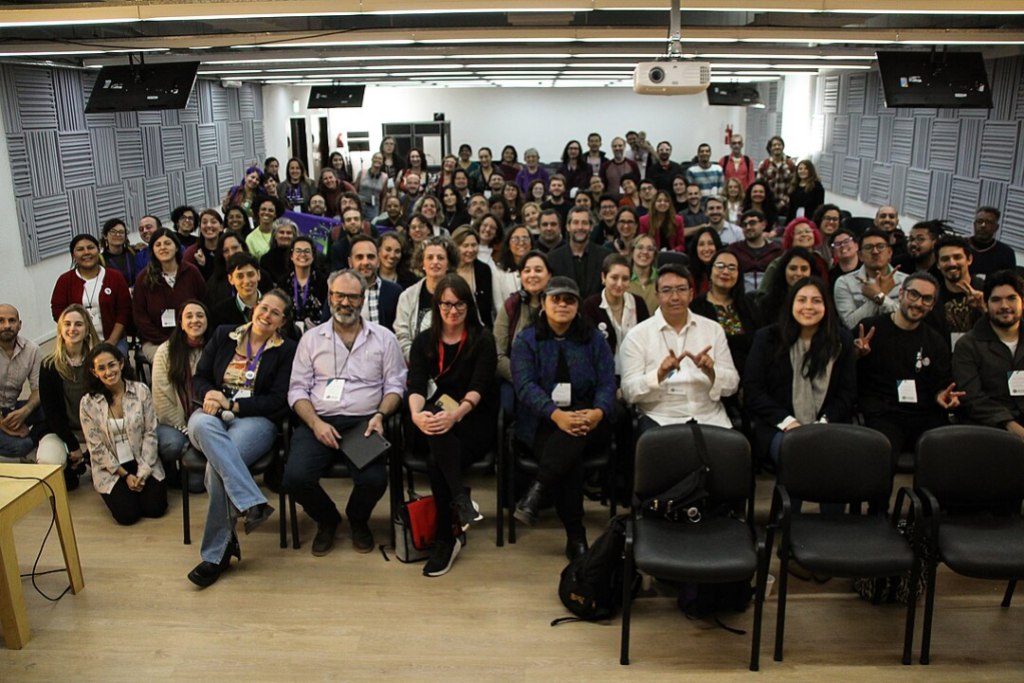
Nearly 200 people took part of WECUDI, the First International Congress Congress on Wikimedia, Education and Digital Cultures (WECUDI, after the original in Spanish), organized by Wikimedia Argentina and the National University of La Plata (UNLP), from Septermber 14 to 16, 2023, at La Plata in Argentina.
The Congress had a keynote presentation by Lisa Seitz-Gruwell and Patricio Lorente, titled “Lessons from Wikipedia. Preparing Students for the Next Generation of AI”, as well as lectures by Inés Dussel, Lesley Gourlay, Whose Knowledge and Carmen Alcázar, Executive Director of Wikimedia Mexico.
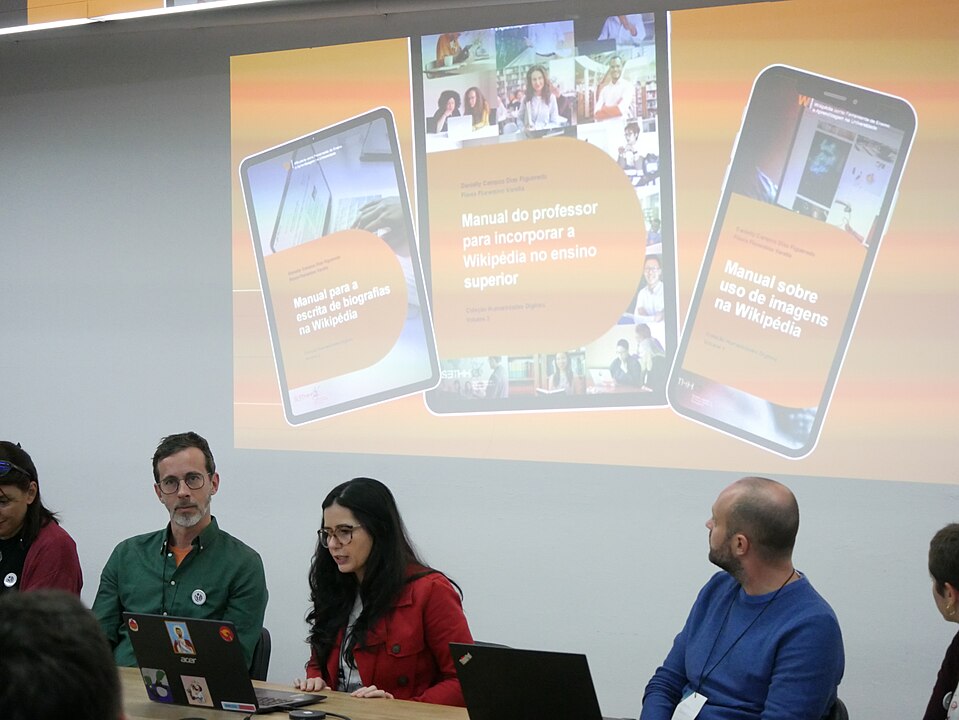
During those three days, participants dived in to workshops and talks exploring the diversity of uses and experiences with Wikipedia, other Wikimedia projects and Education, along the following thematic areas:
- Wikimedia projects and Higher education,
- Human Rights, Feminisms, and the Decolonization of the Internet from a pedagogical perspective,
- Experiences in school to re-think the usage of digital technology in classrooms,
- Media and Information Literacy as a subject worth studying: experiences from research,
- Disinformation and warning strategies on the Internet from an educational perspective.
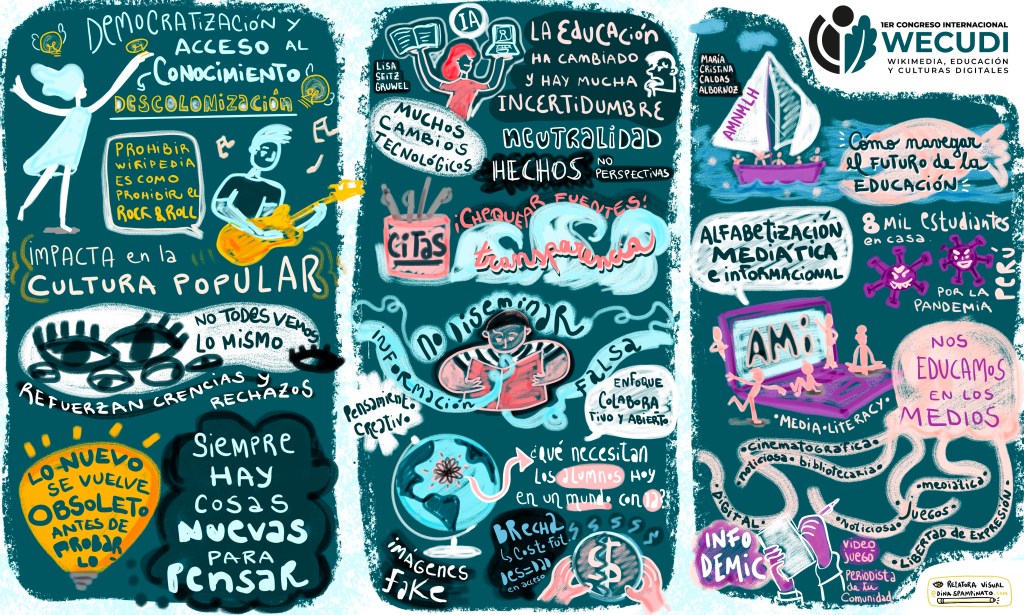
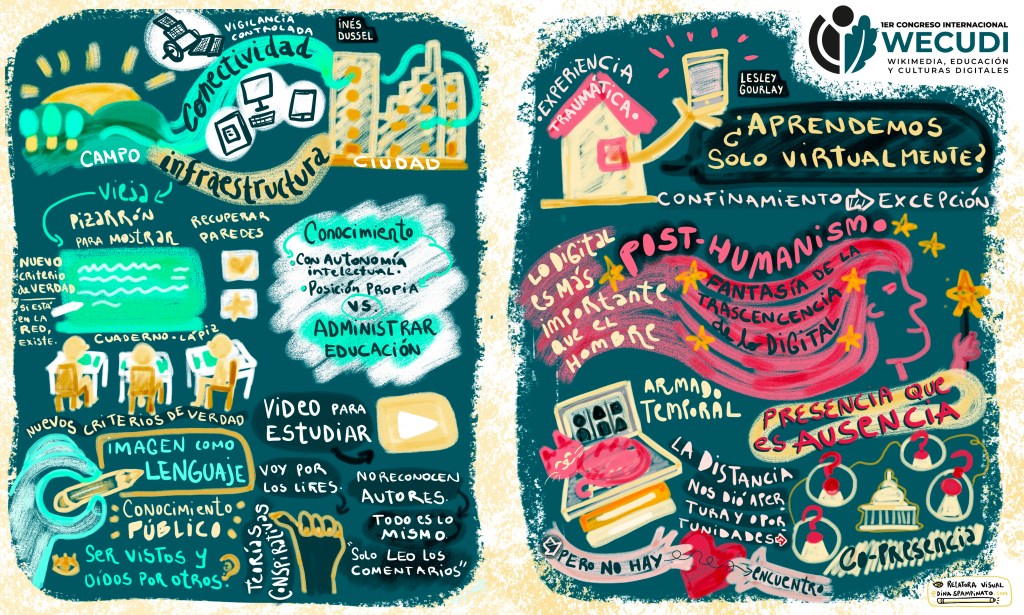
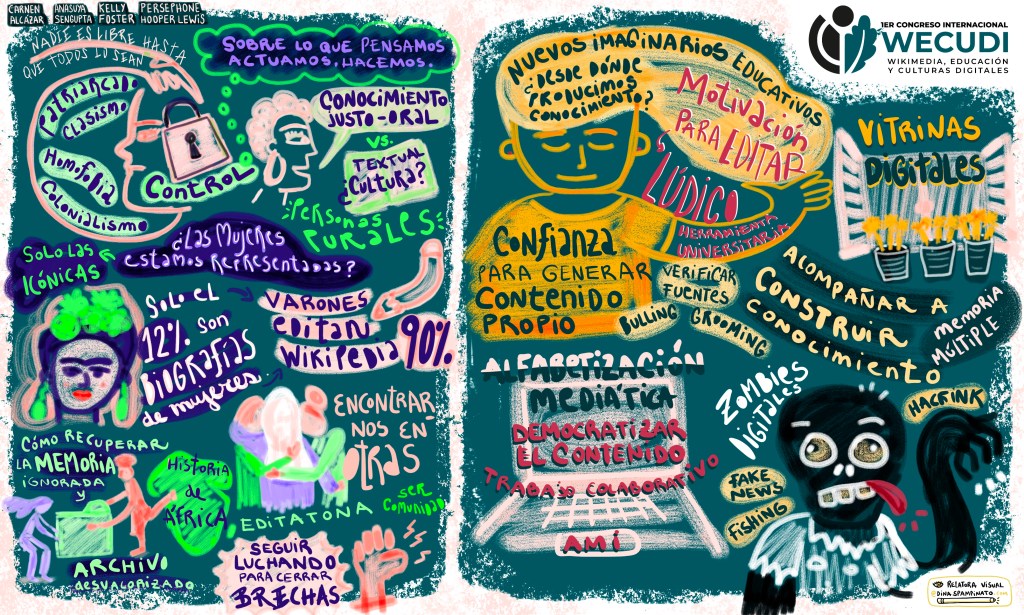
The days went by in an athmosphere of collaboration and learning, a gathering for lovers of free culture and accessible information who took part of almost 100 talks, panels and workshops of all kinds. WECUDI was a place to share ideas and experiences, not just at local level, as there were representatives from countries such as Brazil, Bolivia, Chile, Colombia, Peru, Mexico, Spain, Basque Country, Serbia and Uruguay; all of whom worked together to promote the importance of community in the creation and communication of free knowledge.
This way, the 50+ people presenting pitched questions and challenges for imaginaria where Wikipedia is a tool, already installed and used by teachers while also dealing with other social processes such as disinformation, the need to promote a feminist internet, from a Human Rights perspective, and keep it accessible to as many people as possible.
So the most frequent questions were: where is knowledge produced? What do students need in a world where Artificial Intelligence exists? How can we democratize access to knowledge?
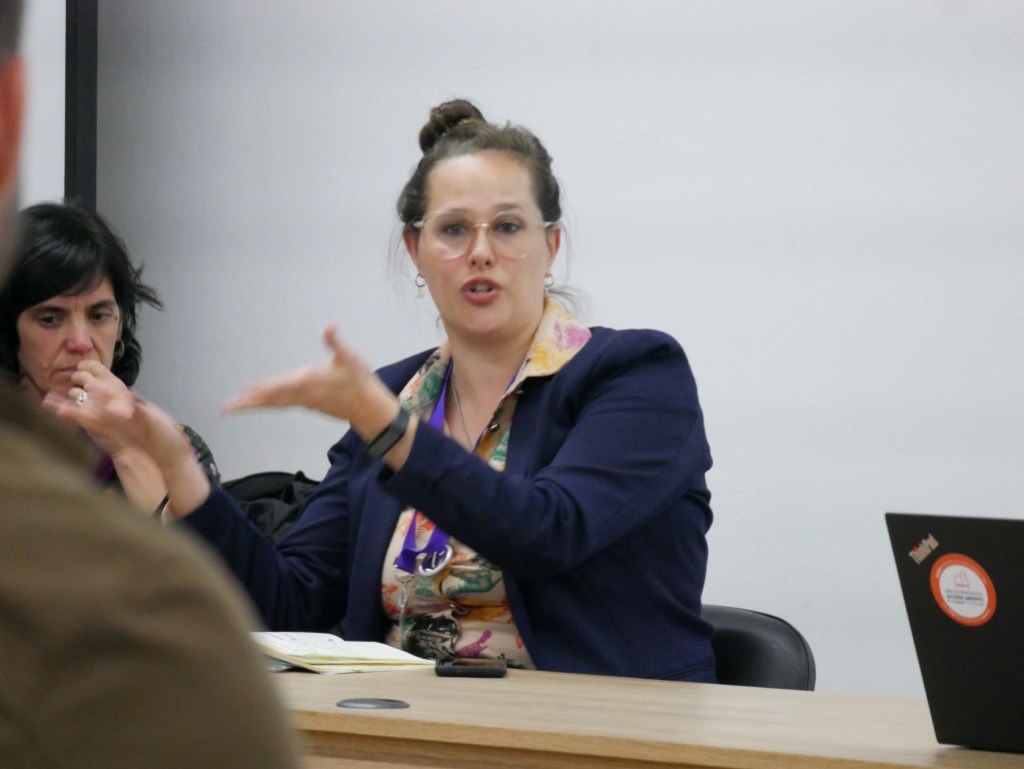
WECUDI, as told by assistants
Near the end of the third day, participants were asked over Mentimeter what were their major takeaways from the Congress. The general results can be seen in the following wordcloud.
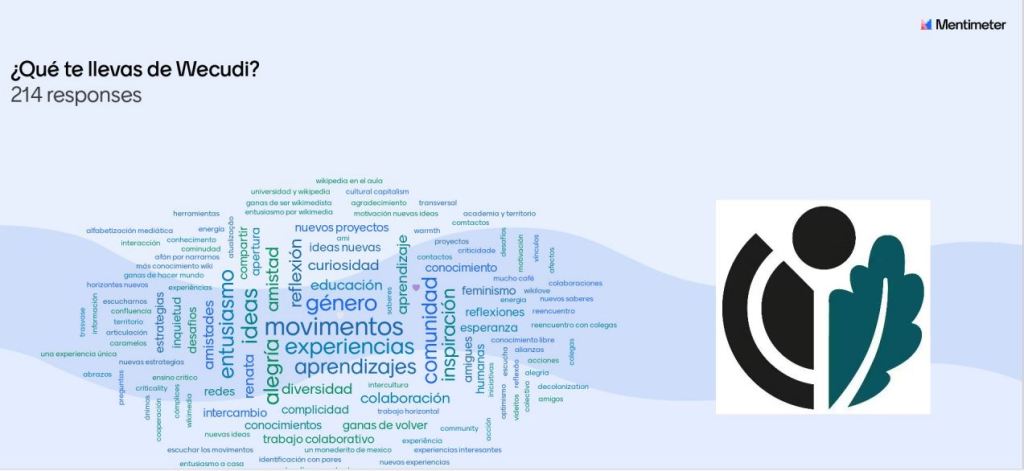
Melissa Guadalupe Huertas (Senior Learning and Capacity Strategist) told us about her experience:
WECUDI was a warm and welcoming place for learning and celebration, strengthening the links between the Wikimedia Movement and Academia. Wikimedians from around the world, as well as teachers and students at UNLP gave the event a shared spirit of genuine curiosity, challenging each other to reflect on and build on the central themes of the Congress.
The event provided an open, horizontal platform to have a conversation, not just about the positive impact of educational experiences centered around the Wikimedia projects, but also on pressing matters such as the knowledge gaps and gender inequality present in the Movement.
Near the end of the Congress, there was a particular moment that captured what I believe is the essence of this event: a teacher spoke on how this Congress made her believe in Academia again—highlighting the power she saw in the enthusiasm and shared purpose of all participants, looking forward to change the world in a real way. I take this moment as a powerful remonder of the transformative power of this space, as well as all my gratitude to the colleagues at Wikimedia Argentina and the UNLP for organizing the whole thing.
Melissa Guadalupe Huertas
Berna Gaitán Otan—volunteer at Wikimedia Argentina—also shared with us:
I had the chance to talk about Archivo Inundación, spreading the word on the importance of memory in digital territories, the exchange of ideas and enhancing collaboration networks.
These were three days full of learning, reflecting, and calls for the continued strengthening of collaborative networks. I want to thank the people who showed interest in the Archive, as they made very precise comments and concrete ideas on how to improve the project.
This Congress allowed several opportunities for exchange between different projects coming from the Wikimedia movement, as well as the potential addition of new volunteers and allies working in educational and academic institutions, activist groups, media, among others.
Berna Gaitán Otan
La Plata, a Wikipedian City par excellence
The event was possible owing to the strategic alliance between Wikimedia Argentina and the National University of La Plata, who have worked under a mutual agreement on cooperation since 2019, aiming to make visible all the content and scientific production of the University. This way, the Congress wasn’t limited to only the hallways of the Sergio Karakachoff Building, as Wikimedians also visited the Public Library and Natural Sciences Museum, both part of the University.
Hungry for more?
The whole coverage of the event was uploaded to Wikimedia Commons, with select excerpts at the Wikimedia Argentina social media.

Can you help us translate this article?
In order for this article to reach as many people as possible we would like your help. Can you translate this article to get the message out?
Start translation